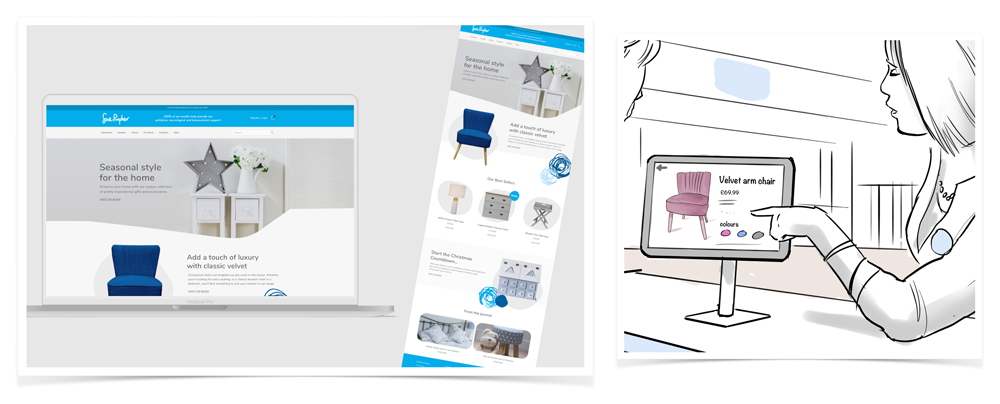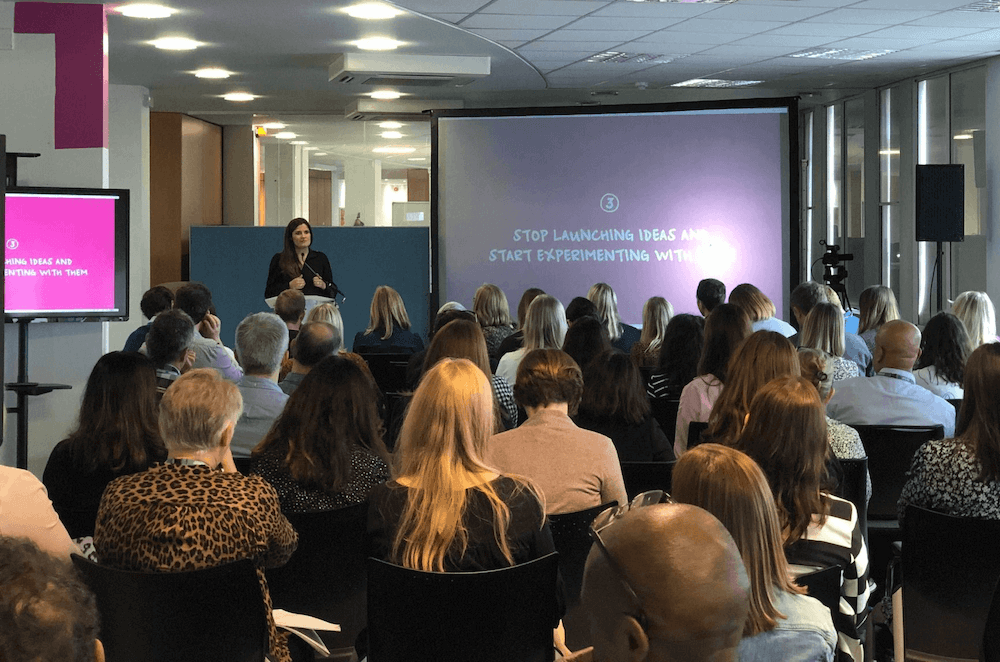How can charities be at the forefront of innovation? Can they create products, services and movements that donors want to be part of? Here’s how we’ve worked with some big names to create value and new ideas in uncertain times.
Having worked in and for 100+ charities over the years, the people in the &us team know the power and impact of the third sector. Whether cancer wards, investigative journalists, scientists or climate activists (to name just a few), the UK relies on charities to fund some of our most important, and progressive initiatives.
We know it's becoming increasingly difficult to source public and donor funding, so delivering exciting and enticing services is more challenging than ever. With the darker horizons of climate breakdown, the cost of living crisis and possible recession, charities are under more pressure than ever to raise funds.
But being (rightly) held to extremely high ethical standards can culturally stifle experimentation and risk-taking. And being accountable for every penny can breed fear – of change, of digital, of ‘the new’. We’ve seen large charities suffer the same fate as decaying big corporations: siloed teams, 20th century thinking and the unforeseen disruption from startups.
This is why innovation, and creativity, are more important than ever. Read on to see how we can help.
Need funding?
Innovate UK is now offering a £2million pot to fund people- and planet-centred design projects. Find out all the details here.

How we can help
Volunteer-first thinking
In the early days of Covid, The British Red Cross (BRC) needed a volunteer recruitment journey that was powerful enough to mitigate concerns, whilst inspiring enough bravery and motivation to see volunteers all the way through from application to deployment.
The brief: How do you inspire someone to do something that is demanding, potentially a risk to their health and has no tangible reward?
Through a bold 2 weeks of design thinking sprints, we collaborated, researched and ‘started by starting’, with the pillars of Inspire, Guide, Reassure, Educate becoming the guardrails of the work.
The outcomes:
- We introduced collaborative tools and helped BRC implement user-centric design to the volunteer teams
- We delivered a set of clear design principles to take forward and apply to future volunteer experiences
- We created a powerful set of design assets for the microsite which aim to inspire, educate, empower, and guide users through the application process.
“The nature of the work, and the team at &us, meant that we moved faster, joined the dots between the digital experience and the back office operations, and arguably had a lot more fun than our usual projects.”

Test an idea’s ROI in 8 weeks
UK-based charity Sue Ryder were looking for a solution to enhance their customer offering. Moving from the store to online wasn’t a seamless experience, with the two channels functioning separately. Stores could often miss out on sales by not knowing where else to direct customers to find items. They were interested in the idea of whether an in-store kiosk could solve these problems for them.
Over 8 weeks we:
- Carried out a store environment and back-office operations audit, as well as technical analysis of the existing platform.
- Produced retail concepts, digital product designs and high fidelity prototypes to bring the experience to life.
- Created recommendations based on whether they would see the level of ROI needed to justify a nationwide roll-out.

5 Bold Moves
What are the 5 Bold Moves your organisation could make towards being a more agile, innovative space? Our Coaching Director, Lucy Hackshaw, spoke at an event for Macmillan Cancer Support’s top 100 leaders, collaborating on making their business better.
We shared the ‘5 Bold Moves’ we think are:
- The key to getting started, making progress towards being a more innovative organisation, and
- Where teams build their capabilities to ensure those principles are embedded in the culture.
There was a great energy in the room, and we not only helped inspire their thinking, but we also came away as energised as they did.
